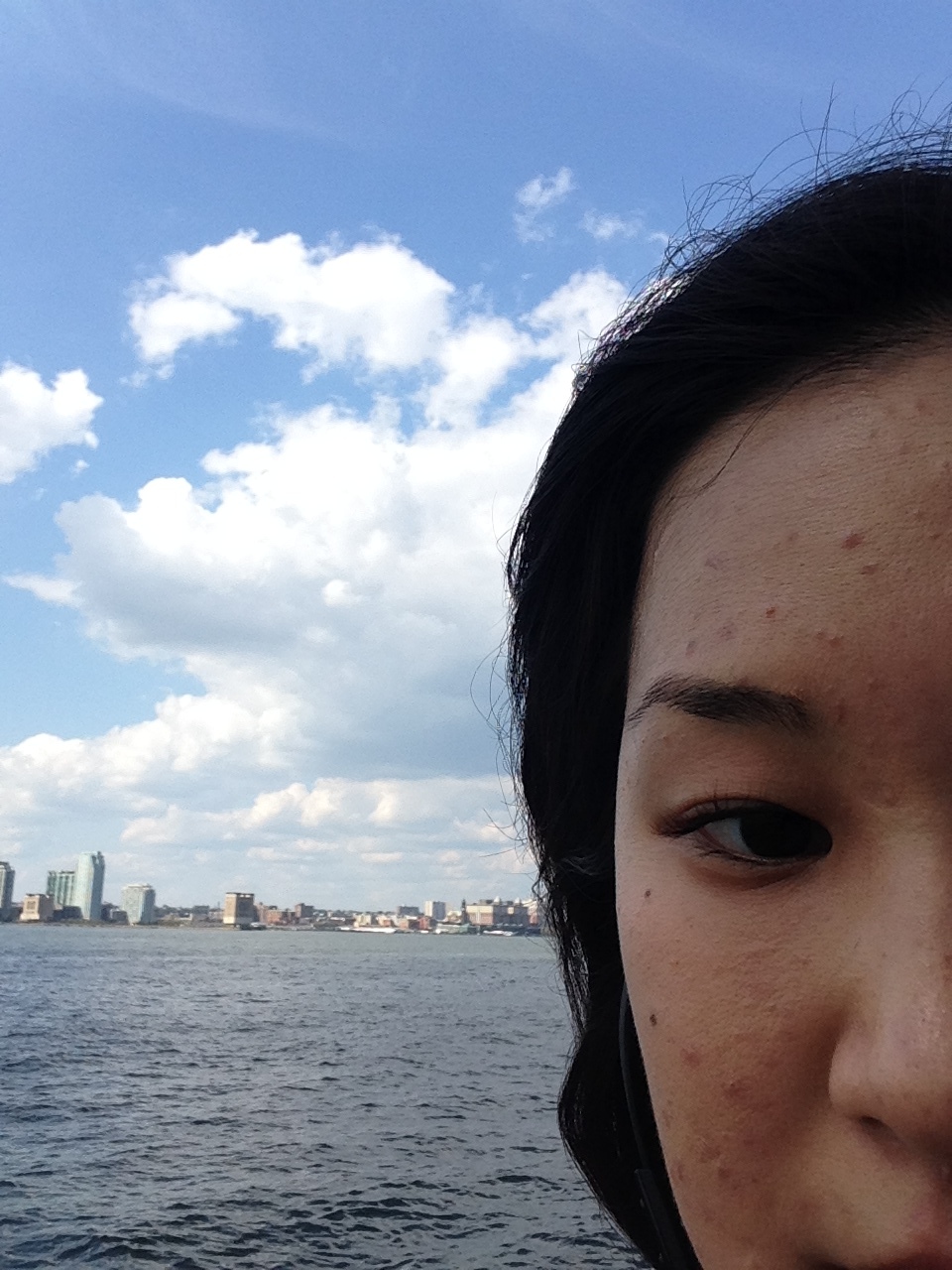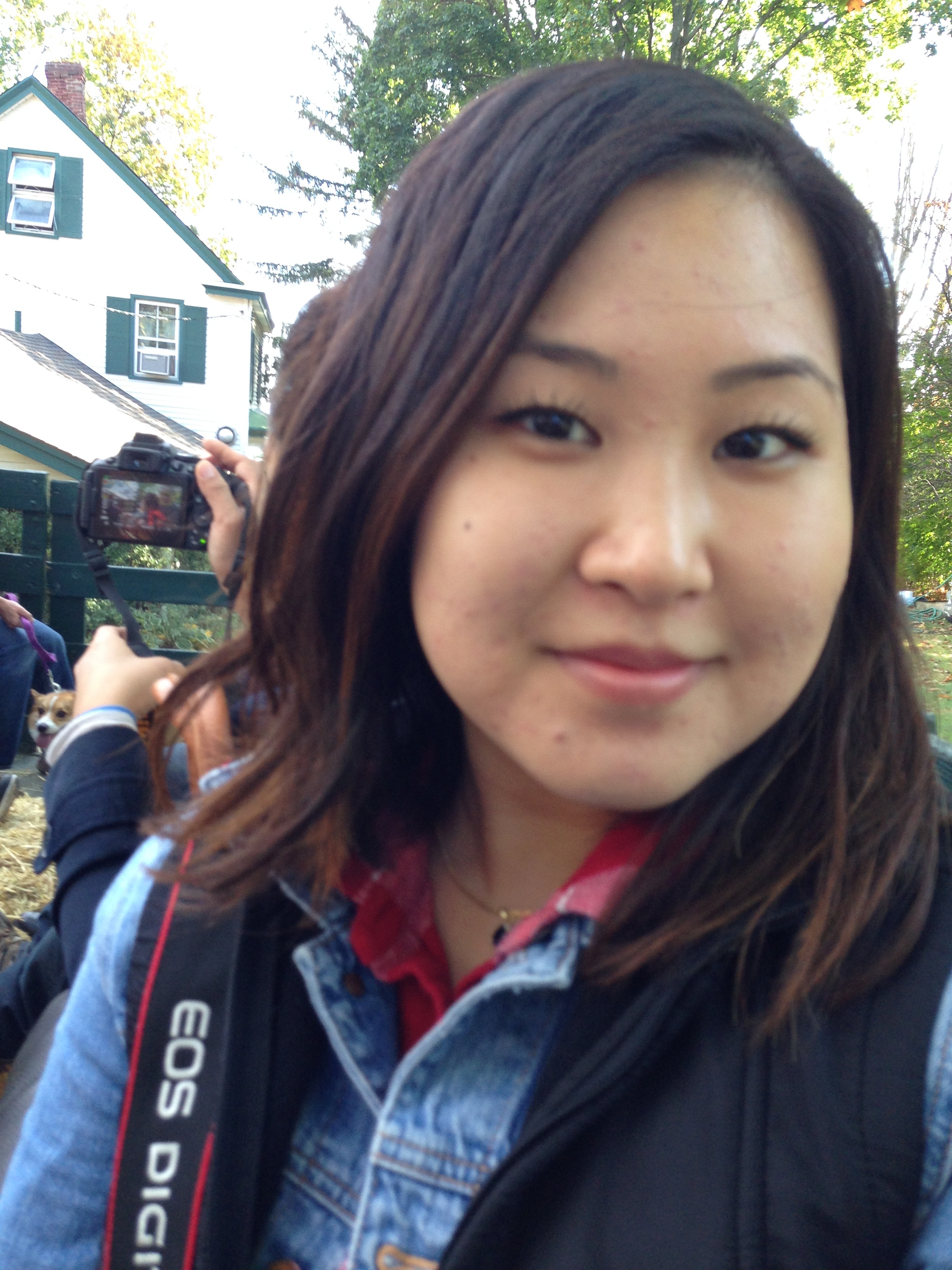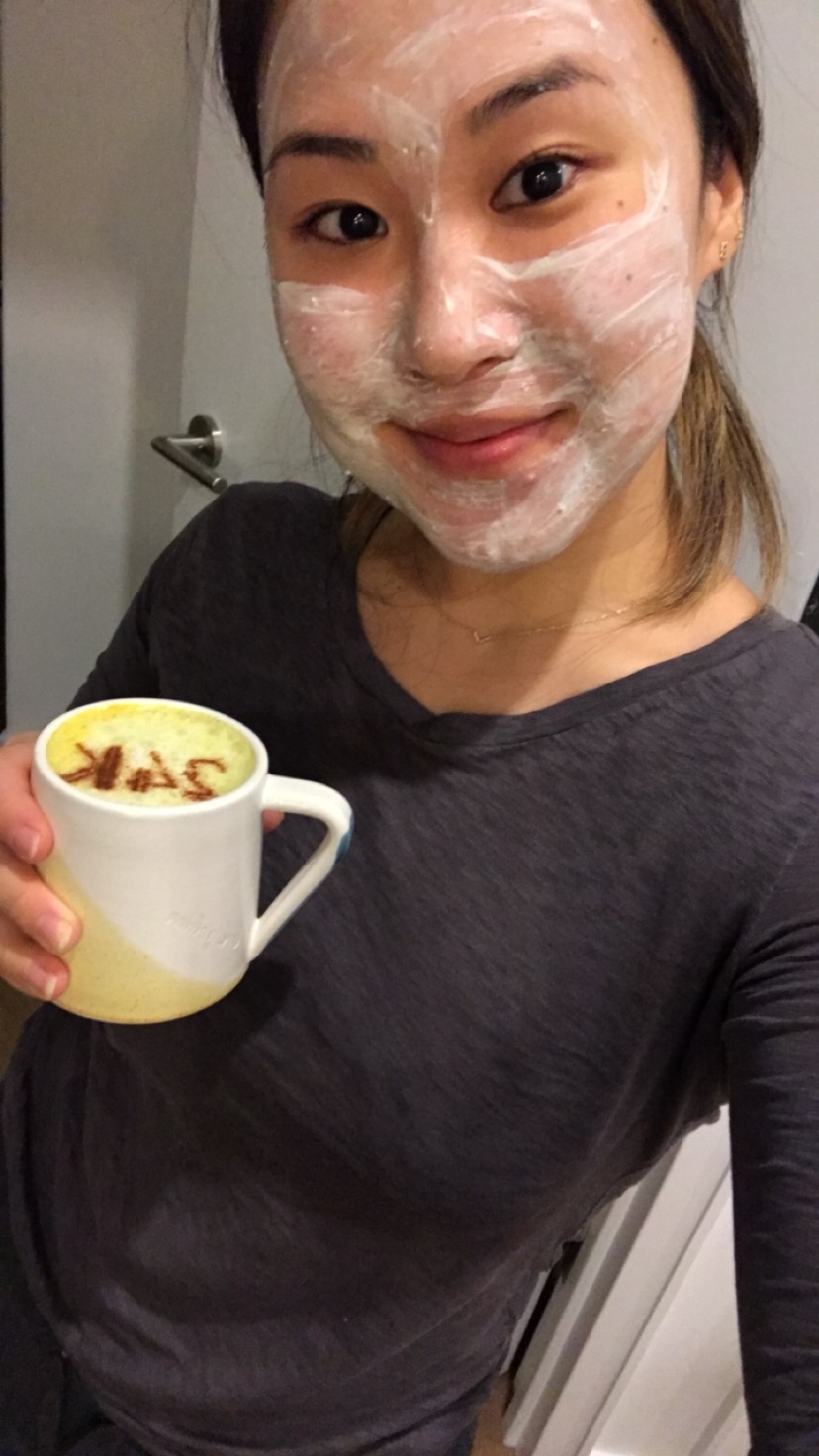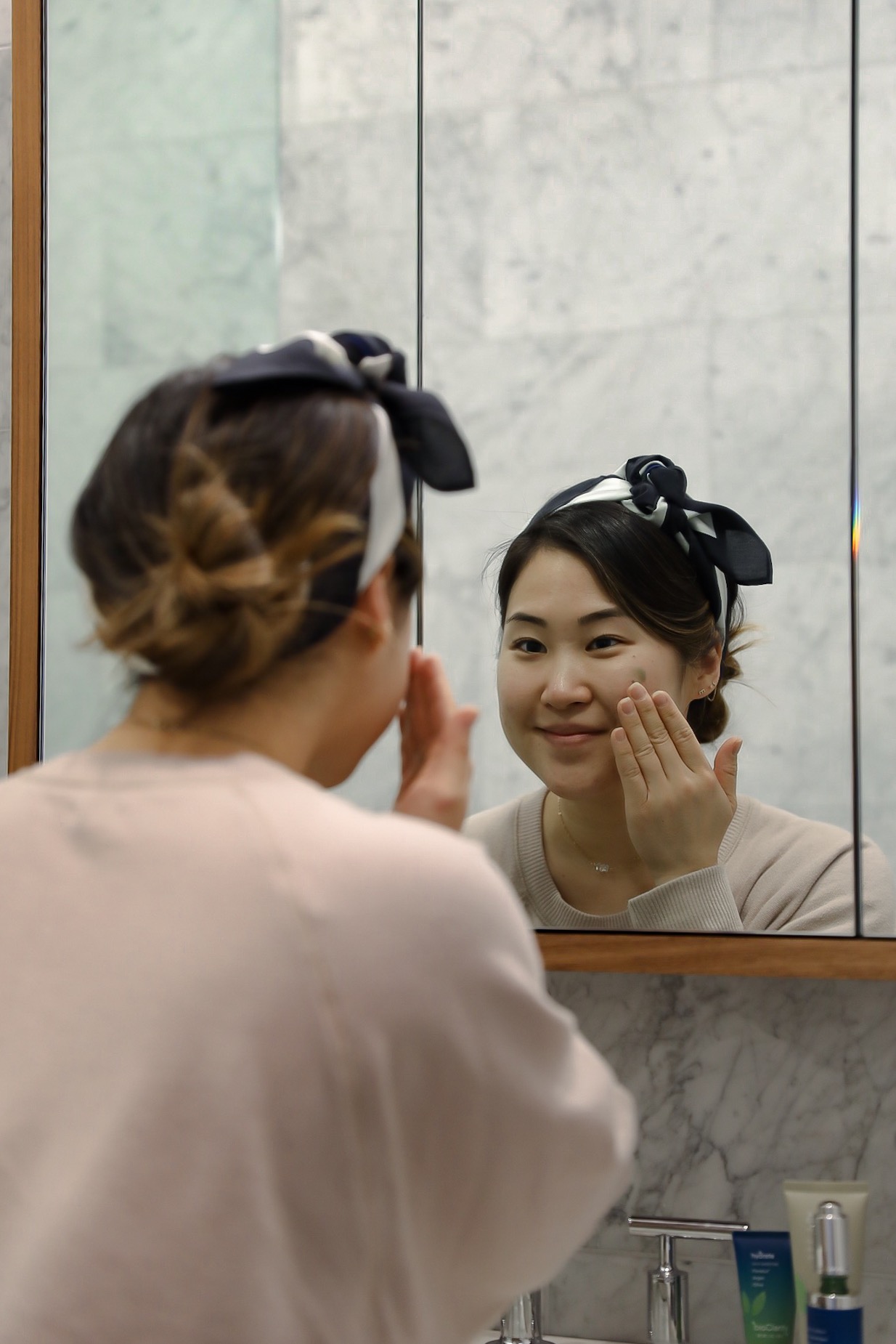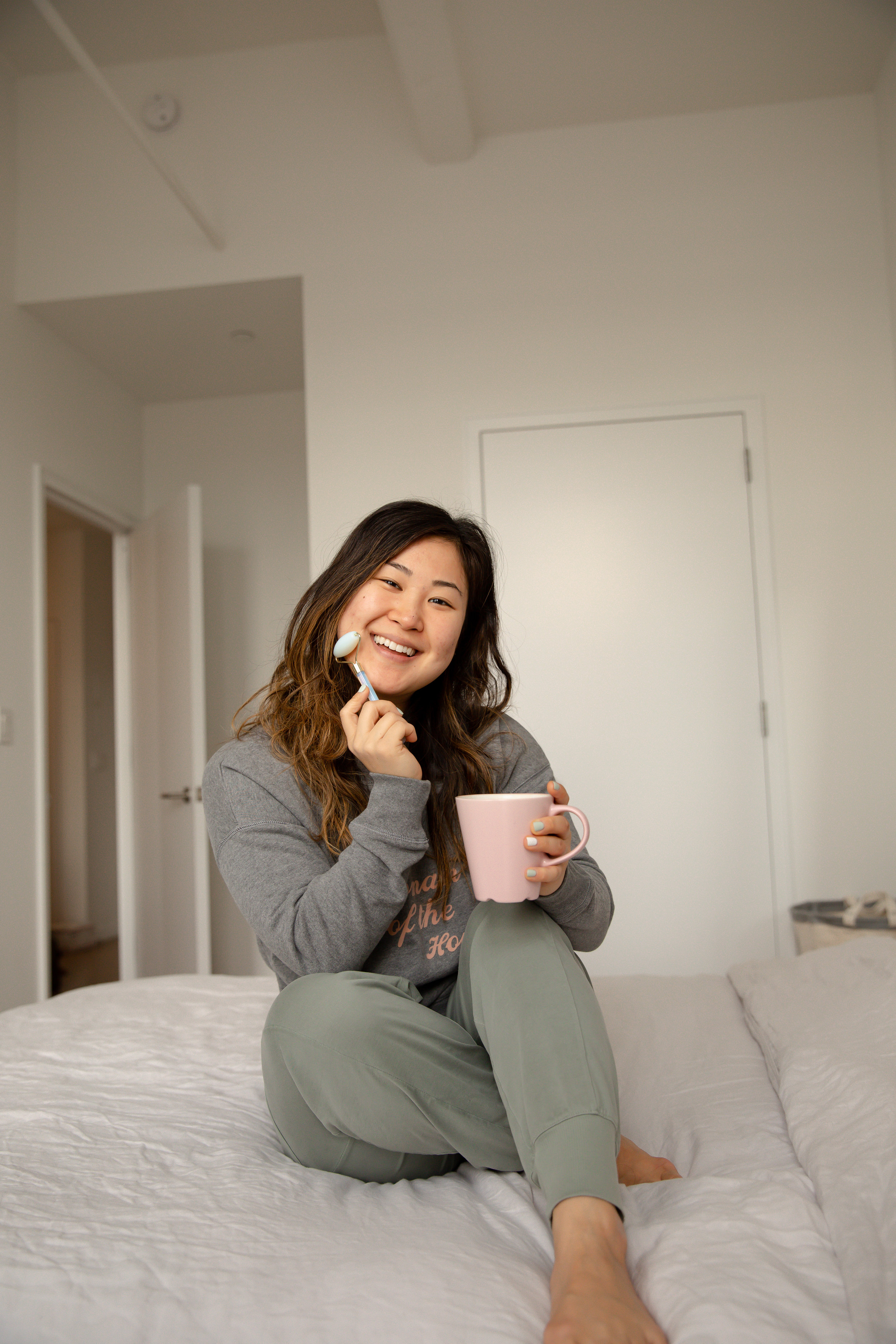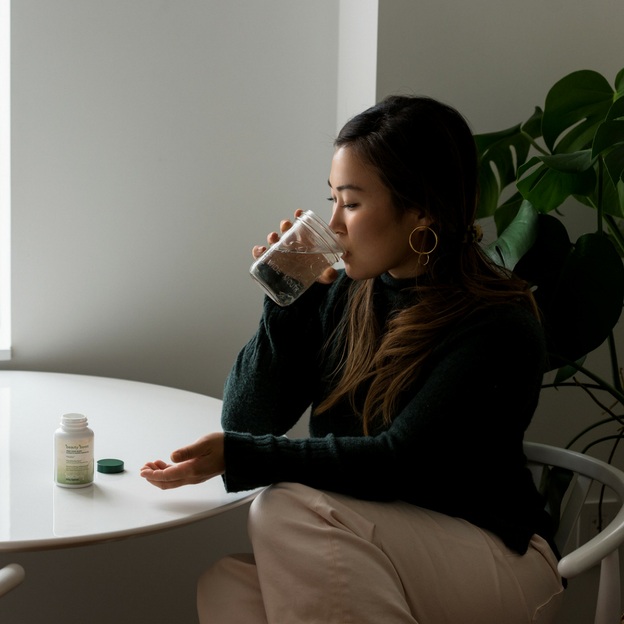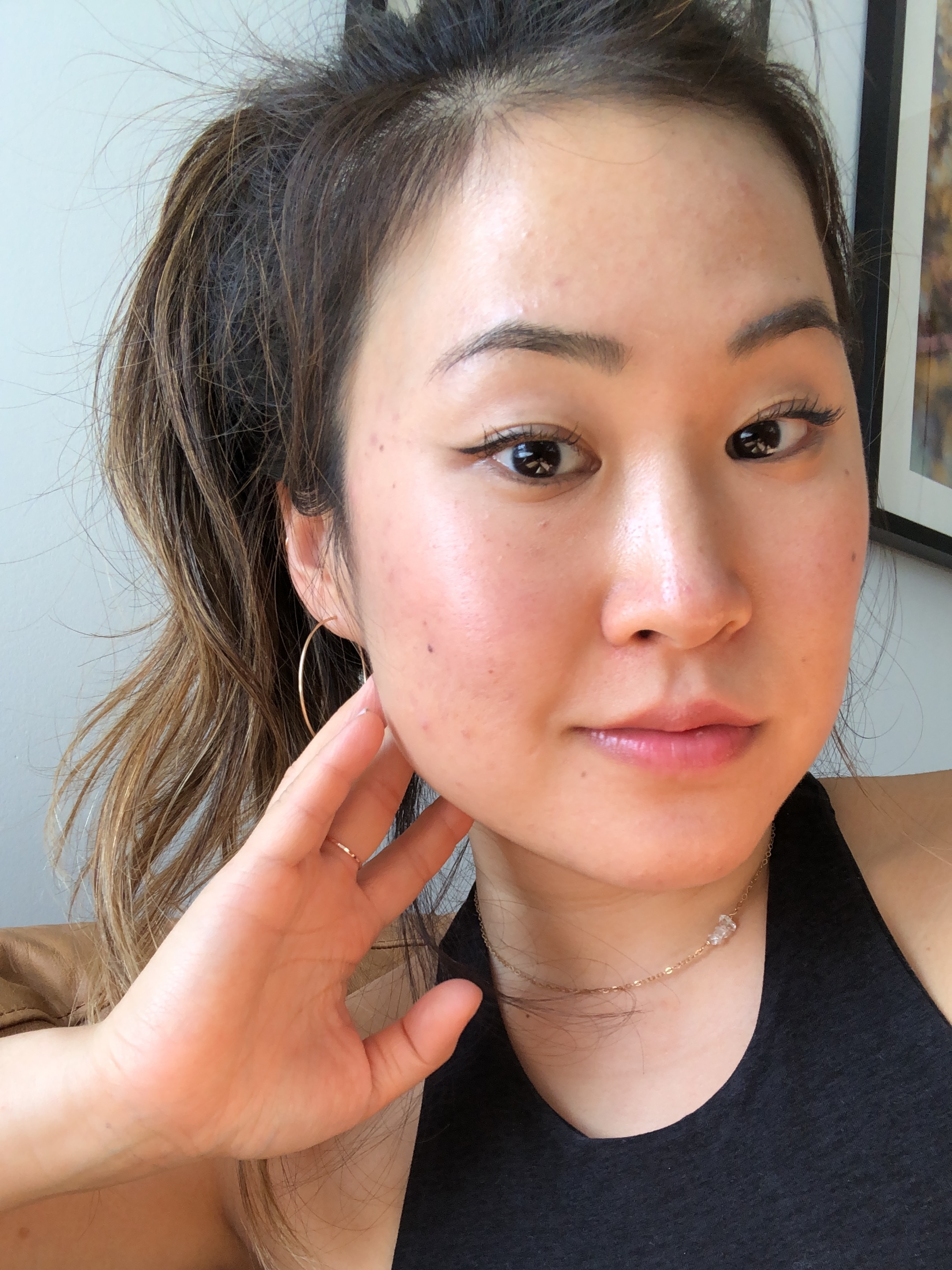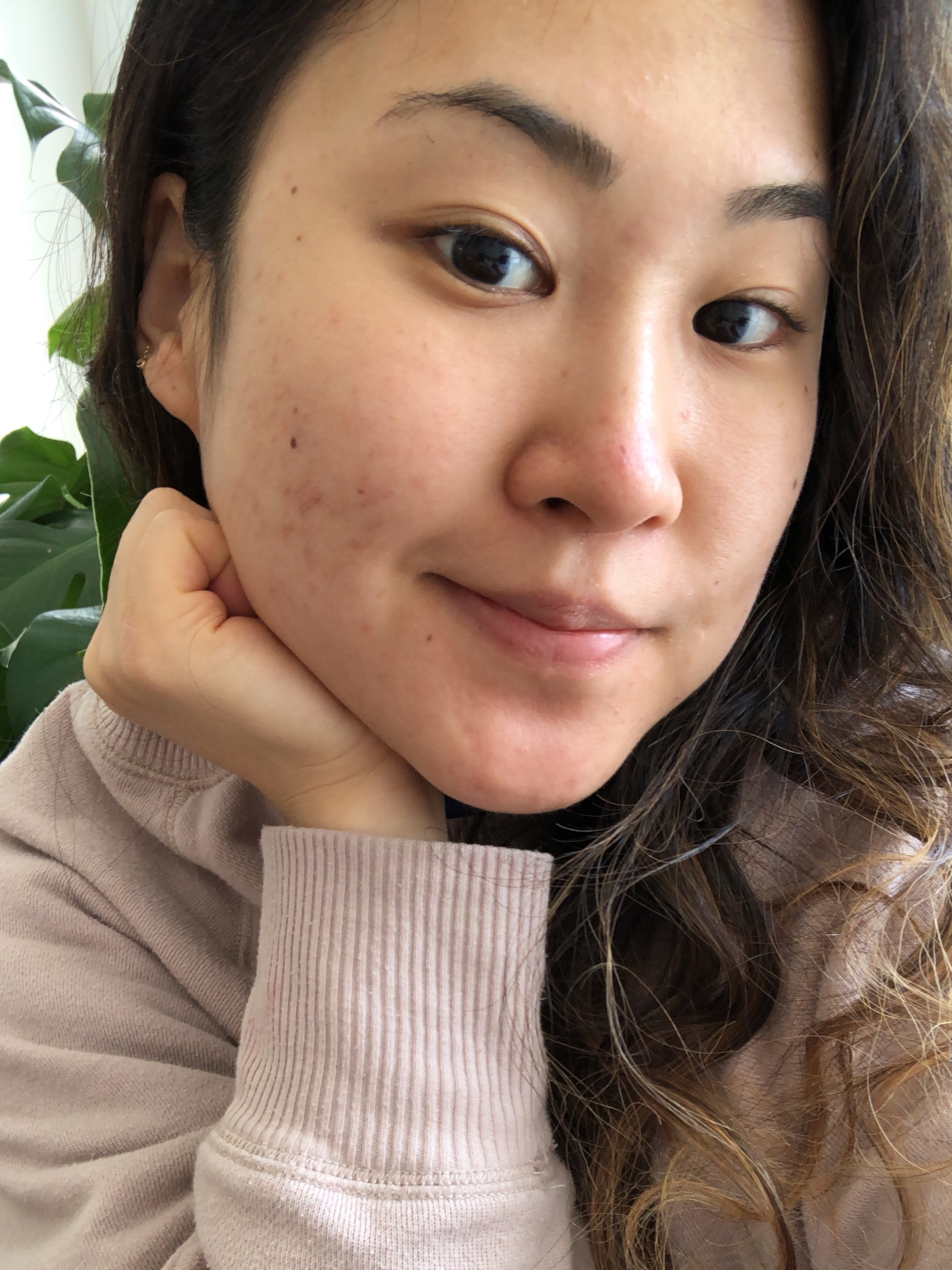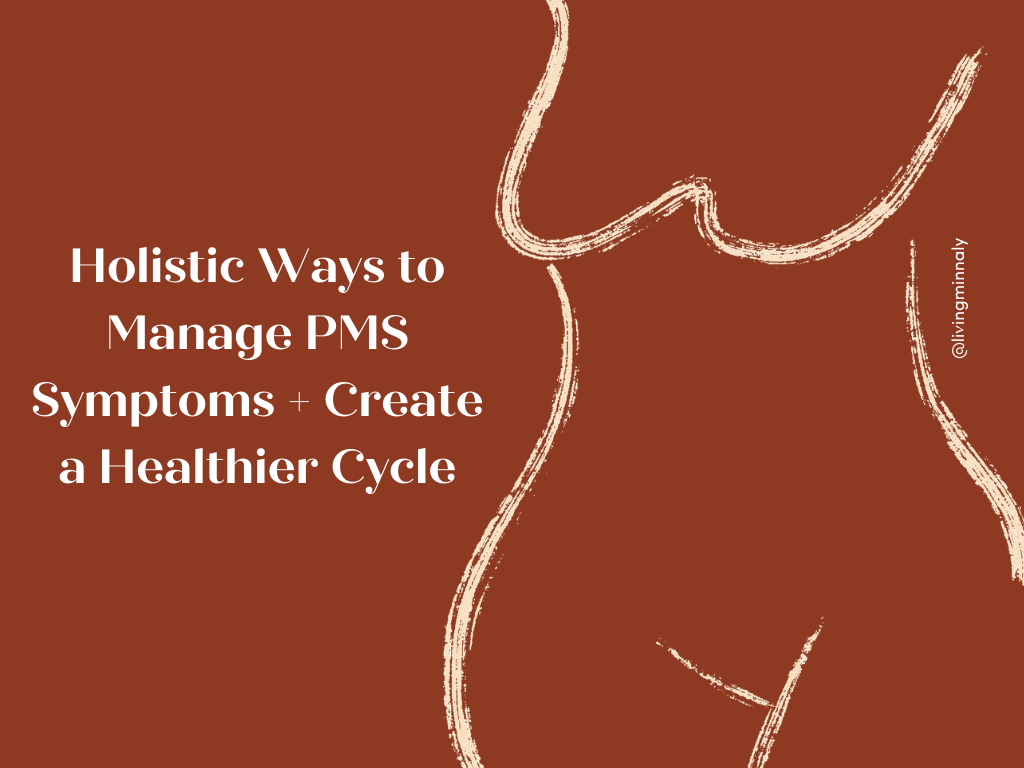My Hormonal Acne Journey: Healing + Managing Acne
January 2017—July 2018— February 2019
One of my most requested blog post topics, hormonal acne has also been one of the harder things for me to talk about. Not only because I’ve had quite the ups and downs with it and that it has been an emotionally difficult issue for me over the years, but also because it’s still an ongoing journey for me.
So for me, I not only struggled with the insecurity and discomfort of sharing my past and current photos of my skin, but also a bit of “imposter syndrome;” as in, how could I talk about healing my hormonal acne when I still have skin that is far from flawless? Then, I realized that mentality is exactly what I fight against when it comes to speaking about body image issues, so why should this be any different? If anything, those of us who have dealt with problematic skin are usually far more well-versed in skincare than those with not many skin issues, because we’ve had to actually figure things out!
DISCLAIMER: This is not a blog post that is a cheat sheet to curing hormonal acne— the causes + severity of hormonal acne varies for each person, but there are lifestyle factors that are hugely impactful for most people that I want to help explain so it can broaden your perspective on your journey and hopefully give you some new tools of knowledge. Also, nothing here is a medical recommendation, as that is beyond my scope. I am sharing what I have done and used, from an anecdotal, personal perspective.
The Emotional Struggles w/Acne
It is SO real, so don’t feel badly about fretting over your skin. Having “problematic skin” can make anyone feel insecure. While body image issues and confidence around that aspect of physical appearance has become almost the norm to talk about, very few people are open and unfiltered about their skin struggles on social media.
We are also living in a time when skincare is talked about quite a bit, and the beauty trend currently centers around having glowy skin and minimal makeup— that “no makeup makeup” look. A common sentiment I hear is how people feel they don’t have skin “good enough” to use minimal products. That makes me sad to hear this, since I empathize – I am not someone who likes to put on makeup every day, so it’d be a dream to roll out of bed, wash my face, and head out the door without a second thought. I’m not quite there yet, at the point where I feel comfortable going to meet people or go to work events without some light coverage foundation, but I’m happy to go run errands in the neighborhood with a bare face— and this took me quite some time to even get here.
But the biggest mental hurdle for me to overcome was fighting the stigma that people with troubled skin don’t take care of themselves. Mainly because as much as this isn’t “fair,” appearance does affect my career in this industry of wellness. Whether it’s my appearance that I am a healthy, fit individual as a personal trainer + nutrition coach, brand partnerships for my blog, or as the owner of a wellness company, it played a role in my work. Learning to grapple with this insecurity and feeling of shame around this was the thing I struggled with most. There is a sense of dissonance and frustration, that comes from knowing I put more effort into my health than most, but the outside not seemingly matching what is within. It’s also ironic, because stressing about your skin only makes your skin worse, since stress has a physical effect— it can feel like a lose-lose situation, but I’m hoping this post will give you some mental relief and hope.
Biggest Misconceptions / Myths About Hormonal Acne
You can 100% control your skin through diet: While yes, there are a number of dietary changes to help your skin that should be part of the initial steps in clearing your skin, I want to reinforce that A) there is no one magical food for your skin and B) for some people, an ideal diet still doesn’t cure hormonal acne. Being overly obsessive about every aspect of your diet with your skincare can kick up some pretty unhealthy behaviors of fear around food (been there!) and cause more stress that only worsens acne— this was key for me to find a healthy balance here.
It’s only hormonal acne if it’s on your chin: I’ve seen all the roadmaps of acne that facialists, estheticians, and dermatologists share about the breakouts on your face— while I think there can be a correlation for many people, for me, there has been zero geographical correlation I’ve been able to track. It’s frustrating to be told that acne only looks one way.
The Timeline of My Journey
I’m telling you all of this to give some groundwork on how I pieced together the things that really affected my acne for the better and worse!
PART 1 OF 3: PRE-HASHIMOTO’S
I had some normal breakouts as a teenager that I (sadly) got prescribed antibiotics (tetracycline) and all the benzoyl peroxide and clindamycin topicals you can imagine for it. It seemed to work, and then I never had any issues in college— I used a simple 3 step routine a la Neutrogena with some cleanser, salicylic acid topicals and that’s about it. Post-college, I started getting occasional cystic acne (1-2 spots every few months), but this time on my cheeks for the first time in my life— not too big a deal.
PART 2 OF 3: HEIGHT OF HASHI’S AND THE 2 YEARS AFTERWARD
Then rolled around my hip surgery in springtime of 2014. After a stressful initial recovery phase and rushing to get back to work, my body imploded on me (read more on my Hashimoto’s story here), and thus began my hormonal acne chapter of my life. Acne— cystic, little whiteheads, all and everything— absolutely everywhere on my face. This + my other symptoms drove me to do an elimination diet, but out of sheer desperation and urging of my doctor at the time, I also reluctantly went back on the birth control pill in the winter. I also chopped off my hair to stop hiding behind it because I wanted to take some control back and stop being so ashamed of my skin. All of this led me back to clearer skin that I was satisfied with, within about 5 months, and I didn’t know I had Hashimoto’s yet, so I resumed eating gluten and dairy… then another 5 months later, the acne began to return.
PART 3 OF 3: THE RESURGENCE THROUGH NOW
It was early 2016 and I was now diagnosed with Hashimoto’s, and my hormonal acne was slowly worsening. It was also one of the worst years of my life in 2016 with my dad’s cancer + subsequent passing and being stuck in a very toxic relationship, so my stress was through the roof – then, I also decided to get off of the birth control pill (this didn’t do much for my skin either way, just messed with my hormones like crazy). Mid-2016, I finally gave up gluten for good and focused on gut health/ all anti-inflammatory everything. I slowly started switching to cleaner products for body + hair care and household products. My hormonal acne was still giving me a great deal of mental stress though, so I gave spironolactone a try at a very low dosage of 50mg. By early 2017, I was back in therapy, having broken out of the toxic relationship, and to heal and grieve the loss of my father— my skin was in a much better place. I then kicked off my startup venture… and well, my health fell apart because #startuplife made me stressed out of my mind. My skin became arguably worse than it had ever been, and it felt deeply shameful for someone who ran 3 businesses around wellness. It was extremely frustrating because I was doing “all the things right” (ate well, avoided my allergens, used all the supplements, used the good skincare / makeup products).
Fast-forward to July 2018, when I hit a breaking point and realized I needed to reclaim my health and reprioritize myself as #1. That’s when my skin really started to heal again and it’s been at a mostly consistent place since then, though I have my flare-ups from some factors below I’ll be talking about. I am still on a very low dose of spironolactone as it helped mostly with helping me be free of the painful cystic breakouts. I eventually would like to be off of this entirely though.
The 4 Biggest Factors in Managing My Acne
The 3 S’s: SLEEP, STRESS, SEX.
These 3 factors have absolutely everything to do with your endocrine (hormonal) system. Proper sleep is key for recovery, which then affects everything from collagen production, insulin health, energy, inflammation, and your body functioning at its best. Stress leading to high levels of cortisol + adrenaline don’t help your skin, as it just encourages inflammation and hormonal imbalances that only increase sebum production [READ MORE: Understanding Stress Management].
When it comes to sex and pleasure, I wish more people would talk more about how great it is for your general health— but more specifically, when it comes to your skin + hormones, orgasms release oxytocin, which has been shown to help reduce cortisol. Even aside from sex, simple physical touch also helps release oxytocin in the body— ever notice how you can feel more relaxed after a deep embrace or a few minutes of a massage?
Skin Hygiene + Barrier Restoration.
Stop touching and picking at your face. Seriously, our hands (and PHONES) carry so much bacteria, so try to avoid touching your face throughout the day and most definitely do not pick at your acne. It’s also a good idea to swap out your pillowcases every 3 or so days, as a lot of face + hair product as well as dead skin cells can accumulate on those things— after all, we do spend 7-9 hours each night on it! I’m a big fan of hypochlorous acid (diluted for usage on the skin), as it helps clear any bacteria that may prompt acne.
For skin barrier restoration, what I mean is is that for any of us who have tried any and everything for their acne with topical products, sometimes you can destroy your natural skin barrier— especially if you’ve been using strong stuff like benzoyl peroxide, antibiotics like clindamycin, etc. Then it makes it hard to figure out if any products even work for you, because any and everything just irritates the shit out of it. So if you find yourself here, take 2 weeks to restore your skin barrier— no topicals with ‘active’ agents, just wash with simple cleansers, don’t exfoliate, and just gently moisturize. Moisturizers with ingredients like hydrating hyaluronic acid and soothing centella asiatica are great for this.
Gut Health + Supplements
I won’t deep dive into gut health right now, as it’s such an extensive topic, but gut / digestive health is indeed a big foundation for healthy skin. Excessive sugar, too much inflammatory fats, and highly processed foods, in high doses, aren’t anyone’s BFF. Collagen has L-Glutamine, which has been shown to help restore the GI (gastrointestinal) barrier, and is a great supplement to help heal your gut. A good multi-strain probiotic is also a huge helper in supporting your gut health— fermented foods like kimchi, sauerkraut, and kefir are great additions, but a proper probiotic can make a world of difference in helping stabilize gut functions crucial to happy hormones. I really like this one by GOL, and Seed’s.
When it comes to supplements, there are a few key things. Healthy levels of Vitamin D, Selenium, HDL/LDL cholesterol, B vitamins are all key to a healthy endocrine system, aka happy skin, so get those blood tests done with your doctor to see if you need to supplement with anything here! For me, I take Garden of Life’s Women’s Multivitamin to cover my bases with my selenium, zinc, and B-vitamins, because I am deficient in these, then additional vitamin D because I’m highly deficient.
Product Management
BOOKMARK THIS PAGE. I got put in touch with Kimberly, the founder of Skin Salvation in San Francisco, through a friend and I am so thankful. She was hugely helpful on a single consult call, but then this tool she built on her website is the holy freakin’ grail. You copy/paste the complete ingredient list of a product you’re curious about, and it tells you any ingredient that is in there if it’s truly non-comedogenic or not, to what degree on a scale of 1-5, AND what studies back this up. You’d honestly be shocked at how many products out there contain these ingredients that do not do your skin any favors when you’re seriously struggling with acne and trying to get clearer.
I also avoid products that contain coconut oil for skincare and most haircare (because it’s too close to my face and you sleep on your hair) There are the unicorns out there that can tolerate coconut oil on their skin, but the majority of dermatologists, facialists, and skincare experts I have talked to who specialize in acne have told me that coconut oil is a nightmare for them and their clients.
Then additionally, I have done some light laser treatments (at Skin Laundry, and with a dermatologist) to help heal some of the hyperpigmentation left behind from my acne; those were definitely helpful and I plan to do more in the future eventually, but I’m more focused on taking care of prevention and healing the other areas right now. I also don’t want to feel urgency to erase my scars / residual marks because for me, mentally, it feels like I am reinforcing that my “scars” are something to be ashamed of; and I am working on not feeling that way about my imperfect skin. Because I shouldn’t be ashamed of it!
BIGGEST ADVICE FOR DEALING WITH HEALING YOUR ACNE
First and foremost, take care of your mental health around having your acne. The stress over and shame around your acne is completely understandable to have, but it is also going to just continue to distance yourself from healing your skin if you don’t practice compassion with yourself. There have been times where my skin has made me feel deeply depressed, and was comparable to some feelings I had around my body image and eating disorder. There were days I didn’t want to leave my house and I have felt SO uncomfortable + nervous in times like waking up bare-faced for the first time around my boyfriend (btw, if any dude or girl makes you feel any less beautiful because of your skin, fuck that guy / girl— you don’t need that shit😇), but getting comfortable with my skin and not feeling like I failed whenever new visitors on my face would show up is the best thing I ever did for my sanity and my skin.
Manage that stress + get that sleeeeep. This goes hand in hand with the first thing, but seriously— this is the #1 thing that wreaks absolute havoc on my skin. And yes, stressing about your skin only makes it worse— it’s all cyclical! My skin is honestly happiest when I am happy and taking care of myself.
Be patient and resist the quick fixes / trying to “CURE” acne. Medications, aggressive topicals, things that promise to zap your zits, heavy makeup, etc— I know, I KNOW just how alluring those things are when you are feeling desperate and down on yourself about your skin. But just like a flash diet or cleanse won’t fundamentally help your health or body, neither will those things for you skin. Focus on the long game here and take care of yourself as a whole, and your mental health around this. Clear skin is also not a permanent state of being, so stop trying to torture yourself with getting to a place that rarely exists. Skin is a living organ, and fluctuates through life, regardless of acne or not! Also, when trying a new regime or non-toxic product, be patient with it— give things at least 3 weeks before you conclude if it works or not.
Find what works for YOU. The same thing will not work for everyone. For instance, I know caffeine is an irritant for a lot of people with their skin, but it doesn’t really make a difference for my skin— I’ve quit caffeine for several weeks and reintroduced it with no issue, whereas I know some peoples hormones really react to coffee. I’ve had professionals tell me to do things that didn’t work for me despite giving it months, so it’s all about trying to see what works best for you.



